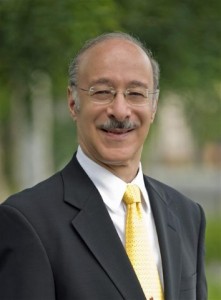
Steve Karoul is a recognized casino consultant with 35 years of hands-on experience with the best casinos both within the United States and internationally. He is also an authority on all aspects of casino marketing. Steve has lived in numerous countries and has conducted casino marketing activities in well over 100 countries around the world. He is an author, a lecturer and an educator who often injects his own hands on experiences and openly shares his ideas and thoughts with fellow industry executives. Telephone +(1-860) 536-1828 or skaroul@comcast.net or see www.euroasiacasino.com
What do AML, FINCEN, Casinos and Banks all have in common? It is not intrigue but unfortunately the intrigue element comes into play because of Compliance. Compliance is the new mantra of both casinos and banks today. Unfortunately there have been abuses within both systems and both industries handle large amounts of cash. Cash used to be “King” but not any longer. Today cash generates concern. That concern translates across many industries today besides just casinos and banks.
For example, FINCEN falls under the US Department of the Treasury. This is the Financial Crimes Enforcement Network and they have both casinos and banks in their sights among other industries. This not only affects casinos in the United States but also affects western casinos conducting business in Asia or elsewhere around the world. FINCEN’s charter is as follows:
“FINCEN’s mission is to safeguard the financial system from illicit use and combat money laundering and promote national security through the collection, analysis, and dissemination of financial intelligence and strategic use of financial authorities”
FINCEN today is a very powerful, far-reaching organization. Most casino executives today know about AML/PTF (Anti Money-Laundering and the Prevention of Terrorism Financing). Casinos today have to pay close attention to the OFAC list (The Office of Foreign Assets Control) which is also under the Treasury. Their charter is:
The Office of Foreign Assets Control (OFAC) of the U.S. Department of the Treasury administers and enforces economic and trade sanctions based on U.S. foreign policy and national security goals against targeted foreign countries and regimes, terrorists, international narcotics traffickers, those engaged in activities related to the proliferation of weapons of mass destruction, and other threats to the national security, foreign policy or economy of the United States. OFAC acts under Presidential national emergency powers, as well as authority granted by specific legislation, to impose controls on transactions and freeze assets under U.S. jurisdiction. Many of the sanctions are based on United Nations and other international mandates, are multilateral in scope, and involve close cooperation with allied governments.
U.S. companies including casinos and banks are forbidden from doing business with 5 countries; Iran, Sudan, Cuba, Syria and North Korea but there are also many other sanctioned countries. I counted twenty countries on the 2014 sanction list. OFAC administers a number of different sanctions programs. The sanctions can be either comprehensive or selective, using the blocking of assets and trade restrictions to accomplish foreign policy and national security goals. In addition to this, there is also a long list of SDN’s (Specially Designated Nationals) who we cannot do business with. Consequently many casinos today check 100% of all VIP type individual players coming into their casinos against the SDN list, OFAC list and other lists.
Technology can help this process and some casinos are opting to purchase a platform that will assist them in identifying AML, assess risk, handle case management and generally assist with analysis of patron transactions. Most banks already have this software in place but casinos are just starting to realize that they will need a platform also if they are to address FINCEN’s and others concerns when it comes to AML/PTF. There are a number of companies out there who do business in this space including ‘NICE Actimize’, ‘SAS’, ‘FiServ’ and so on. This, however, is really the tip of the iceberg. Right now, many casinos check to see if patrons are PEP’s (Politically Exposed Persons). These are people who hold posts in Government usually at a reasonably high level. If they are PEP’s, casino staff must ask them what their SOW (Source of Wealth) is. If the casino cannot determine a source of wealth, some casinos will now turn them away and will not deal with them. The KYC (Know Your Customer) mantra is also out there. Where does their money come from? Is it from illicit sources? Could they be money laundering? Is it terrorism money? Is it drug money? Is it Government funds?
Some casinos have already started trying to identify SOW with their customers and the new AML platforms will assist. Later this year the FATF (Financial Action Task Force) will conduct an inspection in Asia. They will be looking at banks but this year casinos are also a particular source of concern for ML/TF. Some government agencies and casino regulators around the world are concerned that casinos don’t have the SOW for many of their customers. This is of course true. Casinos normally know about their credit players and their high-end, VIP players but could eventually be required to start looking at the other layers of players beneath them. In this regard, the AML platform will flag players who are exhibiting behaviors that could suggest illicit activity. This potentially could affect ALL of our casino players. Many casinos have hundreds of thousands if not millions of players in their databases. Imagine what this will mean in a jurisdiction like Macau where casinos rely on outside Junkets to source many of their VIP players and therefore do not know many of these players. All casinos in the United States will need to take this seriously. Many large banks did not take this seriously and have suffered some huge fines and penalties in recent years.
The Wall Street Journal recently reported that in 2012, HSBC Bank agreed to pay US $1.9 billion and enter into a five-year deferred-prosecution agreement to settle allegations including that it failed to catch at least $881 million in drug-trafficking proceeds laundered through its U.S. bank and that its staff stripped data from transactions with Iran, Libya and Sudan to evade U.S. sanctions. Standard Chartered PLC Bank was recently slapped with a $300 million fine after a monitor alleged the bank’s compliance system failed to flag many high-risk transactions. The bank has acknowledged “deficiencies” in its systems. J.P. Morgan Chase & Co. has recently added thousands of staffers charged with bolstering controls and is now working under a similar deferred-prosecution agreement tied to allegations that the bank violated anti-money laundering laws. As of today, HSBC Bank has spent hundreds of millions of dollars to overhaul its anti-money-laundering system. (Colchester, 2015)
Both banks and casinos need to take heed and view this subject very seriously. In fact, the American Gaming Association recently published a very comprehensive document in December 2014 titled “American Gaming Association Best Practices for Anti-Money Laundering Compliance”. It is an excellent document and contains a wealth of information to help casino executives better understand the laws and to be better prepared by educating their employees about the critical need for compliance. Most casino employees already understand the terms CTR (currency transaction reports) and SARS (suspicious activity reports). It should be noted that since 1985, commercial casinos have been defined as “financial institutions” under the BSA (Bank Secrecy Act).
This article contains many acronyms: AML, FINCEN, BSA, PEP, SOW, OFAC, PTF, SDN, etc. Don’t laugh. They are not funny. In fact, this is not a joke. Casino executives today need to understand all of them and how to properly train their staff for compliance. Therefore, it is strongly recommended that all casino executives go to the American Gaming Association website and download a free copy of their December 2014 report on “Best Practices for Anti-Money Laundering Compliance” and study it.
Here is another really interesting thought. Although this is all related to AML/PTF, what does it lead to? Yes, it leads to having a micro look at casino customer behavior. Bet size, length of play, gaming activity, frequency of visit, length of stay and so on and so on. Yes, you got it. RESPONSIBLE GAMING!!! Once we have all of this information, the Government is likely to jump all over it. Are their indicators of radical changes in bet size and the other metrics? Could this mean that these people are problem/pathological gamblers? Where will it end? BIG BROTHER is watching you so be prepared. Casino executives need to thoroughly understand all facets of Compliance today. Keep your casino safe and keep yourself out of trouble. Educate yourself now about AML, FINCEN, BSA, PEP, SOW, OFAC, PTF, SDN, ……






